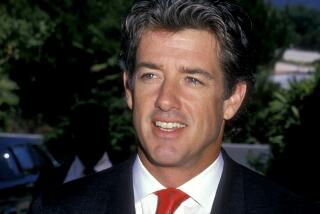Moral authority on a slippery slope
- Share via
WE ARE LIVING in an age of moral authority. It’s not the strength of the argument that matters, it’s the strength of the arguer. Nobody has exploited this more effectively than Cindy Sheehan, the mother of a fallen Iraq war soldier, who took command of the national agenda by camping outside President Bush’s ranch and demanding to meet with him.
Everybody, of course, ought to feel horrible for Sheehan, and to honor her son’s bravery. But Sheehan’s supporters don’t just want us to sympathize with her. They believe that her loss gives her views on the Iraq war more sway than the views of the rest of us. As Maureen Dowd wrote in the New York Times, “the moral authority of parents who bury children killed in Iraq is absolute.”
The right’s response is equally telling. For the most part, conservatives are not arguing that Sheehan’s tragedy tells us nothing about the merits of her views on Iraq. Instead they are trying to discredit her as inauthentic, a Michael Moore pal who left her 2004 meeting with Bush pleased and grateful. As Rush Limbaugh declared, “Her story is nothing more than forged documents.”
The conservative counterattack is pathetic. (The family did not voice its objections to the handling of the war in its meeting with Bush in deference to the occasion, according to a news article.) But aside from the dark comedy of the conservative machine going negative on a grieving mother, the mere fact of the response suggests that the right has bought into the premise peddled by Sheehan and her supporters: If Sheehan is a genuine war mother radicalized by her son’s death, then that is somehow an indictment of Bush and his policies.
One of the important ideas of a democratic culture is that we all have equal standing in the public square. That doesn’t mean stupid ideas should be taken as seriously as smart ones. It means that the content of an argument should be judged on its own merits.
The left seems to be embracing the notion of moral authority in part as a tactical response to the right. For years, conservatives have said or implied that if you criticize a war, you hate the soldiers. During the Clinton years, conservatives insisted that the president lacked “moral authority” to send troops into battle because he had avoided the draft as a youth or, later, because he lied about his affair with Monica Lewinsky.
So adopting veterans or their mourning parents as spokesmen is an understandable counter-tactic. It was a major part of the rationale behind John Kerry’s candidacy. The trouble is, plenty of liberals have come to believe their own bleatings about moral authority. Liberal blogs are filled with attacks on “chicken hawk” conservatives who support the war but never served in the military. A recent story in the antiwar magazine Nation attacked my New Republic editor, Peter Beinart, a supporter of the Iraq war, for having “no national security experience,” as if Nation editors routinely served in the Marine Corps.
The silliness of this argument is obvious. There are parents of dead soldiers on both sides. Conservatives have begun trotting out their own this week. What does this tell us about the virtues or flaws of the war? Nothing.
Or maybe liberals think that having served in war, or losing a loved one in war, gives you standing to oppose wars but not to support them. The trouble is, any war, no matter how justified, has a war hero or relative who opposes it.
Sheehan also criticizes the Afghanistan war. One of the most common (and strongest) liberal indictments of the Iraq war is that it diverted troops that could have been deployed against Al Qaeda in Afghanistan. Are liberals who make that case, yet failed to enlist themselves, chicken hawks too?
More to Read
Get the L.A. Times Politics newsletter
Deeply reported insights into legislation, politics and policy from Sacramento, Washington and beyond. In your inbox twice per week.
You may occasionally receive promotional content from the Los Angeles Times.










